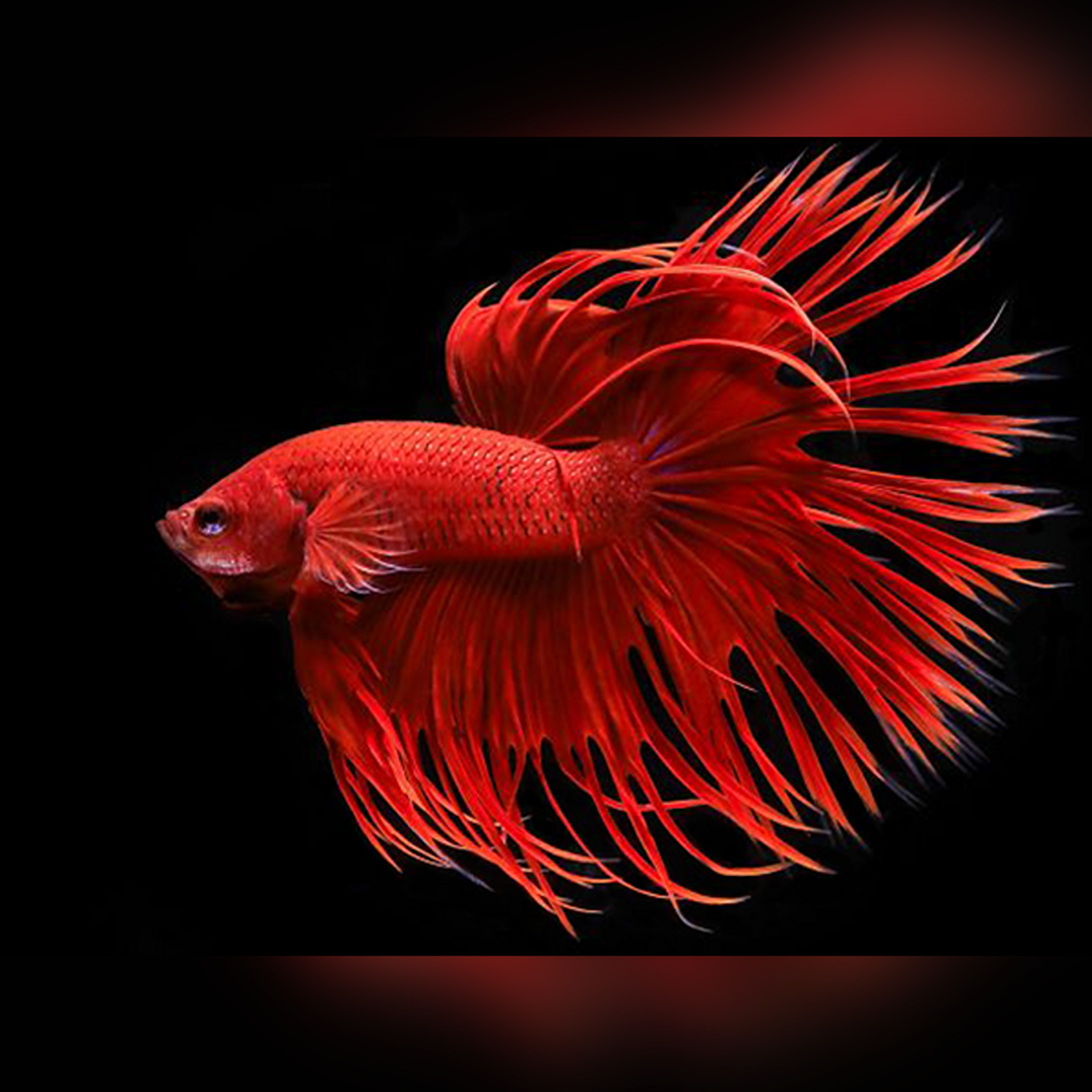When it comes to bettas sleeping, there's more than meets the eye. These vibrant little fish aren't just about their stunning colors and flowing fins. Understanding their sleep patterns is crucial if you want to give your betta the best care possible. Ever wondered if your betta is just resting or if there's something else going on? Well, buckle up because we're diving deep into the world of betta sleep cycles.
Now, let's get one thing straight—bettas sleeping isn't just a random activity. It's a vital part of their daily routine, and it plays a huge role in their overall health. Just like humans, bettas need their rest to stay active and vibrant. But here's the kicker—how do you even know if your betta is sleeping? We’ll break it down for you.
As a devoted betta enthusiast, it's important to recognize the signs that your fish is getting enough shut-eye. Whether you're a seasoned aquarist or just starting your underwater adventure, knowing about bettas sleeping can transform your fishkeeping journey. Stick around, and we'll uncover the secrets!
- Maichan Erome The Rising Star In The Digital Age
- Can You Remote Access A Raspberry Pi Over The Internet Absolutely Heres How
Why Bettas Sleep and What It Means for Their Health
First things first, why do bettas sleep in the first place? Well, it's not just because they’re feeling lazy. Sleep is essential for bettas because it helps them restore energy, process information, and maintain their immune system. Think of it like a recharge for their tiny fishy batteries. If your betta isn't getting enough sleep, you might notice signs of stress or even illness.
Here’s the deal: bettas are diurnal creatures, meaning they're most active during the day and rest at night. But their sleep isn't exactly like ours. They don’t have eyelids, so they can't close their eyes like we do. Instead, they enter a state of rest where their metabolism slows down, and they become less responsive to stimuli. It's like their version of hitting the snooze button.
Now, let’s talk about how sleep impacts their health. When bettas don’t get enough rest, it can lead to weakened immunity, making them more susceptible to diseases. Plus, lack of sleep can affect their mood and behavior, causing them to become lethargic or overly aggressive. So, yeah, it's kind of a big deal.
- Sterre Meijer A Rising Star In The World Of Music And Entertainment
- Mastering Remote Control Raspberry Pi Over Internet Your Ultimate Guide
How to Tell if Your Betta is Sleeping
Alright, let's get down to the nitty-gritty. How do you know if your betta is actually sleeping or if something else is going on? Here are a few signs to look out for:
- Your betta is floating motionlessly near the bottom or middle of the tank.
- Its colors might appear slightly duller than usual.
- It doesn’t respond as quickly to movement or changes in the environment.
- Its breathing is slow and steady.
These are all normal signs of bettas sleeping. However, if your fish is lying on the substrate for extended periods or shows other unusual behaviors, it might be time to investigate further. Sometimes, what looks like sleep could actually be a sign of illness or stress.
Common Misconceptions About Bettas Sleeping
There are a lot of myths floating around about bettas sleeping, and it's time to set the record straight. One common misconception is that bettas don’t need sleep because they’re fish. Wrong! Just because they don’t have eyelids doesn’t mean they don’t need rest. Another myth is that bettas can sleep anywhere in the tank. While it’s true they can rest in different spots, they usually prefer a cozy hiding place where they feel safe.
Here's the kicker: some people think that turning off the tank lights is enough to encourage bettas sleeping. While it does help, there's more to it than that. Bettas need a consistent day-night cycle to regulate their sleep patterns. If their environment is constantly changing, it can disrupt their rest and lead to health issues.
Creating the Perfect Sleep Environment for Your Betta
So, you’ve got the basics down, but how do you create the ultimate sleep haven for your betta? Here are a few tips:
- Make sure your tank has a consistent light cycle—around 10-12 hours of light and 12-14 hours of darkness.
- Provide plenty of hiding spots like caves, plants, or decorations where your betta can feel secure.
- Keep the water temperature stable, ideally between 78-80°F (25-27°C), to promote restful sleep.
- Avoid overfeeding, as undigested food can cause discomfort and disrupt sleep.
By setting up the right conditions, you’ll ensure your betta gets the rest it needs to thrive. Remember, happy betta, happy you!
The Science Behind Bettas Sleeping
Now, let’s dive into the science of bettas sleeping. Research shows that fish, including bettas, experience a state similar to REM sleep in humans. During this time, their brain activity slows down, and they enter a restorative phase. This is when their bodies repair tissues, strengthen immune responses, and process information from the day.
Studies have also found that bettas can experience sleep disturbances due to environmental factors like noise, lighting, or water quality. For example, a study published in the Journal of Experimental Biology revealed that fish exposed to constant light had disrupted sleep patterns and increased stress levels. This highlights the importance of maintaining a balanced environment for your betta.
The Impact of Tank Conditions on Betta Sleep
Your tank setup plays a huge role in how well your betta sleeps. Overcrowded tanks, poor water quality, and lack of hiding spots can all contribute to sleep deprivation. Here’s how to optimize your tank:
- Perform regular water changes to keep ammonia and nitrate levels in check.
- Avoid sudden temperature fluctuations that can stress your fish.
- Use a timer for your tank lights to establish a consistent day-night cycle.
- Add live plants to improve water quality and provide natural hiding spots.
By paying attention to these details, you’ll create a peaceful environment where your betta can rest easy.
Signs Your Betta Isn’t Sleeping Properly
Now that you know what normal bettas sleeping looks like, let’s talk about the red flags. If your betta is lying on the substrate for long periods, has clamped fins, or shows signs of discoloration, it might be a sign of trouble. Other warning signs include:
- Loss of appetite
- Erratic swimming behavior
- Swollen or bloated appearance
- White spots or lesions on the body
These symptoms could indicate a health issue like fin rot, ich, or swim bladder disease. If you notice any of these signs, it’s important to act fast and consult a vet or experienced aquarist.
Tips for Troubleshooting Sleep Issues
So, what do you do if your betta isn’t sleeping well? Here’s a quick checklist:
- Test your water parameters and make adjustments as needed.
- Check for signs of stress or aggression from tank mates.
- Ensure your betta has enough space to swim and rest comfortably.
- Provide a balanced diet to support overall health and energy levels.
By addressing these potential issues, you’ll help your betta get back on track and enjoy restful siestas once again.
The Importance of Rest for Bettas
Let’s not forget why rest is so crucial for bettas. Without proper sleep, your fish may experience a range of problems, from weakened immunity to behavioral changes. Think of it this way—if you don’t get enough sleep, you feel groggy and irritable, right? It’s the same for bettas. They need their rest to stay healthy, happy, and vibrant.
Rest also plays a role in bettas’ ability to heal from injuries or recover from illness. When they’re well-rested, their bodies are better equipped to fight off infections and repair damaged tissues. This is especially important if your betta has recently been through a stressful situation, like being transported or introduced to a new tank.
How Much Sleep Do Bettas Need?
So, how much sleep do bettas actually need? Experts recommend around 12-14 hours of darkness per day to ensure proper rest. This mimics their natural habitat, where they experience consistent day-night cycles. Providing this level of darkness allows your betta to enter a deep, restorative sleep state.
Remember, every betta is unique, so pay attention to your fish’s individual needs. Some may prefer longer periods of rest, while others might be more active at night. As long as they’re showing signs of good health and behavior, you’re probably doing something right.
Conclusion: Prioritize Your Betta’s Sleep for a Happy, Healthy Life
And there you have it—the lowdown on bettas sleeping. From understanding their sleep patterns to creating the perfect environment, we’ve covered everything you need to know to ensure your betta gets the rest it deserves. Remember, a well-rested betta is a happy betta, and a happy betta makes for a joyful fishkeeping experience.
So, what’s next? Take a moment to evaluate your tank setup and make any necessary adjustments to promote better sleep. Share your thoughts in the comments below or check out our other articles for more tips on caring for your aquatic friend. Happy fishkeeping!
Table of Contents
- Why Bettas Sleep and What It Means for Their Health
- How to Tell if Your Betta is Sleeping
- Common Misconceptions About Bettas Sleeping
- Creating the Perfect Sleep Environment for Your Betta
- The Science Behind Bettas Sleeping
- The Impact of Tank Conditions on Betta Sleep
- Signs Your Betta Isn’t Sleeping Properly
- Tips for Troubleshooting Sleep Issues
- The Importance of Rest for Bettas
- How Much Sleep Do Bettas Need?



Detail Author:
- Name : Clotilde Stroman
- Username : gia81
- Email : dbalistreri@yahoo.com
- Birthdate : 2001-10-07
- Address : 18960 Freddie Green West Jaiden, ND 94497
- Phone : +1-610-664-8306
- Company : Towne-Zemlak
- Job : Network Admin OR Computer Systems Administrator
- Bio : Enim odio aliquam et cupiditate. Sunt ad eveniet voluptatem molestias eum optio deleniti. Harum nesciunt enim adipisci est nulla sed sint deserunt.
Socials
tiktok:
- url : https://tiktok.com/@corkerym
- username : corkerym
- bio : Unde delectus rerum esse enim.
- followers : 288
- following : 2378
twitter:
- url : https://twitter.com/corkerym
- username : corkerym
- bio : Esse totam ratione ducimus sequi et harum. Et et enim eius nihil eum magnam sapiente. Perferendis consequatur autem quibusdam sunt quis.
- followers : 2464
- following : 2317
linkedin:
- url : https://linkedin.com/in/marisol_official
- username : marisol_official
- bio : Eos nulla id magni numquam ut deleniti.
- followers : 1089
- following : 539